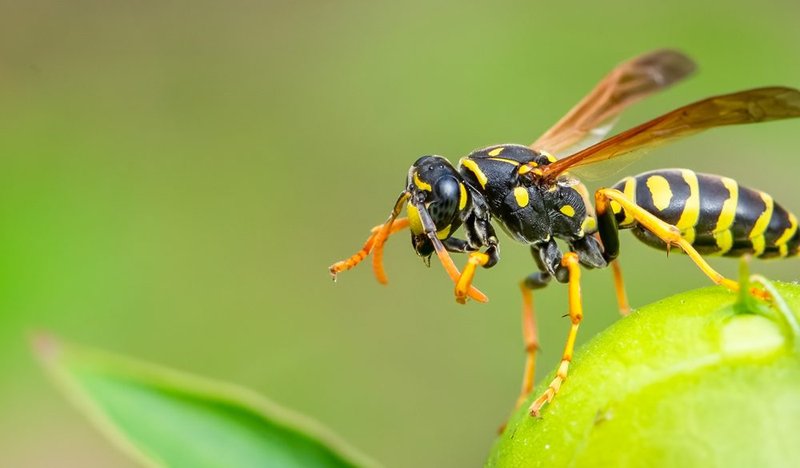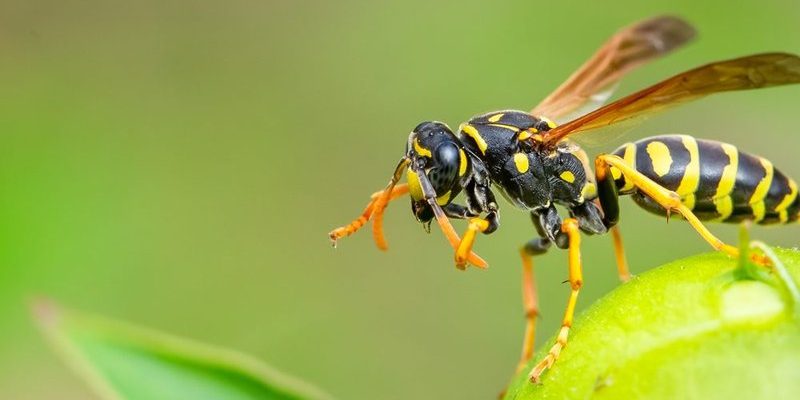
In different traditions, wasps represent both positive and negative attributes. They can embody the fierce protection of family, but they also serve as a reminder of the dangers lurking in our surroundings. You might be surprised to learn that in some cultures, these insects are celebrated, while in others, they are feared. Let’s dive into the world of wasps and discover what they really mean in various cultural contexts.
Wasps in Mythology: Guardians and Creators
In many ancient myths, wasps are seen as guardians or even creators. For example, in certain Native American traditions, wasps are portrayed as diligent workers that teach the importance of hard work and community. These little insects form colonies that thrive through cooperation, much like the structure of a tribe. Here’s the thing: this symbolism extends beyond the physical realm. Wasps remind us of the strength found in unity and determination.
In Greek mythology, the story of the goddess Athena offers a fascinating angle. She was said to have a special connection with wasps, who were believed to represent her fierce protective nature. Just like Athena, whom many see as a symbol of wisdom and warfare, wasps embody the idea of defending what’s important to us. They’re not just stingers; they symbolize the spirit of guardianship and vigilance.
The Dual Nature of Wasps: Builders and Destroyers
Wasps have a unique role in ecosystems, serving as both builders and destroyers. They create intricate nests, showcasing their ability to engineer amazing structures. This construction isn’t just functional; it represents creativity and resilience in nature. You might be wondering, “How does this tie into their symbolism?” Well, in many cultures, the act of building is seen as a metaphor for personal growth and achievement.
However, there’s a flip side. Wasps can also be destructive, especially when they feel threatened. This duality resonates with the human experience—our ability to nurture or harm, to create or destroy. In literature and art, wasps often symbolize the unpredictability of life, reminding us that beauty and danger can coexist. They challenge us to consider how we wield our own power in the world.
Wasps in Art and Literature: Teachers of Life’s Lessons
Throughout history, wasps have appeared in various forms of art and literature, often serving as potent symbols. In Chinese culture, for instance, wasps are depicted in paintings and poetry, emphasizing their hardworking nature. The phrase “like a wasp” is often used to describe someone who is diligent and focused. This cultural nod highlights how wasps are seen as role models for perseverance.
In contrast, wasps can also represent fear in Western literature. Many authors use them as a metaphor for danger or betrayal. For instance, think of how wasps appear in gothic novels, often foreshadowing conflict or chaos. The buzzing sound can evoke anxiety, reflecting the unpredictability of life’s challenges. You could say that wasps serve as a reminder to stay alert and aware of our surroundings.
Spiritual Symbolism: Messengers of Change
In spiritual contexts, wasps are often seen as messengers of change. Many believe that encountering a wasp can signify a shift or transformation in one’s life. This idea resonates deeply in various spiritual practices. It’s as if these tiny creatures are nudging us to pay attention to our personal growth.
In some shamanic traditions, wasps symbolize the empowerment that comes from embracing one’s true nature. They encourage individuals to tap into their inner strength and assertiveness. If you think about it, this empowerment is something we can all relate to. Life is full of transitions, and wasps remind us that embracing change can lead to new opportunities and insights.
Wasps in Folklore: Lessons from Nature
Folklore from around the world often paints wasps in a complex light. In many stories, they serve as teachers, imparting wisdom about harmony and balance. For example, in some African folklore, wasps are believed to guard the secrets of the forest. Their presence signifies that one must tread carefully and maintain respect for nature.
Wasps in folklore often embody a deeper understanding of relationships and cooperation. Many stories highlight how wasps work together for the good of the colony. This collaboration provides a powerful lesson about the importance of community. You might find it fascinating that these tiny creatures inspire tales that encourage unity and respect for each other in our daily lives.
Modern Perceptions: From Pests to Protectors
In today’s world, wasps often get a bad rap. Many people view them solely as pests, more likely to ruin a picnic than to symbolize anything positive. However, there’s a growing movement to appreciate them for their ecological role. Wasps are incredible predators, helping control pest populations. This role is crucial for maintaining balance in ecosystems.
In recent years, environmentalists have begun to highlight the protective aspects of wasps. They’re seen as important allies in the fight against invasive species. By understanding their ecological importance, we can shift our perception of them from fear to respect. It’s a reminder that often, what we fear or dislike can have benefits we don’t initially see.
The cultural symbolism of wasps goes far beyond their buzzing reputation. From ancient mythology to modern environmental discussions, these creatures offer rich lessons about community, resilience, and the duality of nature. You might discover that wasps, despite their negative image, symbolize important life lessons that resonate with our own experiences.
So, the next time you spot a wasp, consider the deeper meanings they might carry. They’re not just nuisances; they’re dynamic symbols of life’s complexities. Embracing the multifaceted nature of wasps can enrich our understanding of both the natural world and ourselves. After all, every creature has a story to tell, and in the case of the wasp, it’s one worth listening to.

